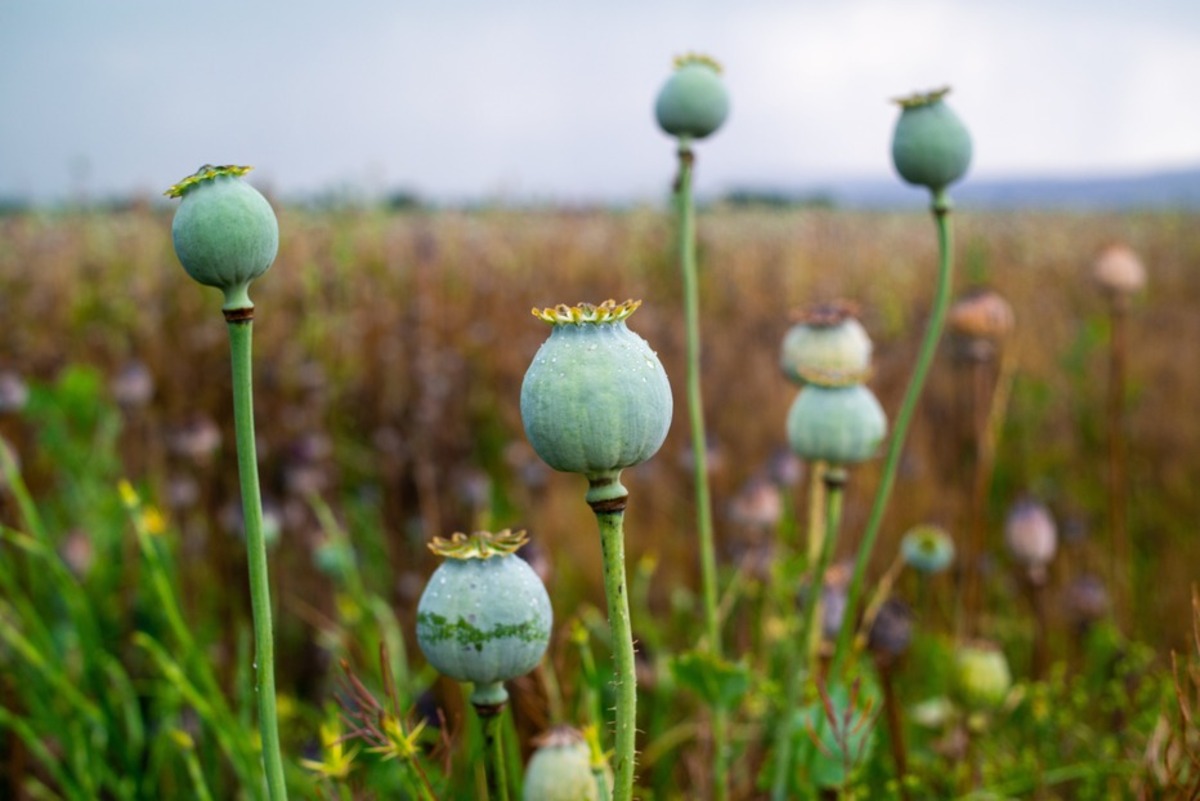Afghan Opium Production at Lowest Level in Decades Following Taliban Ban
The prohibition of drug cultivation in Afghanistan by the Taliban resulted in an extraordinary 95% reduction in the cultivation of opium poppies, which are utilized in the production of morphine and heroin, according to an announcement made by the United Nations on Sunday.
The United Nations Office on Drugs and Crime (UNODC) identified a “near-complete contraction” of the narcotic economy in Afghanistan in its most recent annual survey on opium poppy cultivation in the country. Afghan cultivators reportedly lost more than $1 billion in opium sales revenue as a result of this precipitous decline, which could have catastrophic humanitarian and economic consequences for the impoverished country, according to the UNODC.
In April of the preceding year, the Taliban government enforced a prohibition on poppy cultivation in Afghanistan, a nation that had historically been the foremost producer of opium worldwide.
Opium cultivation decreased in all regions of the country by 2023, from 233,000 hectares to 10,800 hectares, according to a UNODC survey. This decline was accompanied by a 95% reduction in the supply of opium, which fell from 6,200 tons in 2022 to a meager 333 tons in 2023. The report reported that “Farmers’ income from selling the 2023 opium harvest to traders fell by more than 92%, from an estimated US$1,360 million for the 2022 harvest to US$110 million in 2023.”
There was a notable transition among numerous farmers to prioritize wheat cultivation, which led to a substantial expansion of cereal cultivation by 160,000 hectares in provinces such as Farah, Helmand, Kandahar, and Nangarhar, Afghanistan.
While wheat cultivation has the potential to mitigate food insecurity to some degree, its revenue generation is considerably lower than that of opium. According to the report, the adoption of wheat by producers in these four provinces in 2023 resulted in a loss of potential income of approximately $1 billion.
According to research conducted by the United Nations, Afghan merchants are liquidating opium stocks from previous record harvests in order to address the current shortage. Additionally, the report highlighted a decline in the refining of heroin, potentially resulting in a reduction in both illicit trade and consumption within Western markets. It emphasized that the value of opium exports frequently exceeded the value of Afghanistan’s legally exported products and services, underscoring the critical nature of providing alternative development support to rural communities in order to ensure Afghans have a future free from opium.
The UNODC executive director, Ghada Waly, underscored the following: “This situation offers a genuine prospect to advance towards enduring outcomes in combating the illicit opium trade and the detrimental consequences it inflicts on a local and global scale.”
“Azerbaijanis require immediate humanitarian aid to meet their most basic needs, absorb the repercussions of income loss, and preserve lives,” she continued. Afghanistan is in critical need of substantial investments in sustainable livelihoods in the future months in order to provide Afghan farmers with alternatives to opium.
The chief of the United Nations Assistance Mission in Afghanistan, Roza Otunbayeva, emphasized that in a country grappling with severe water scarcity issues, agriculture provides sustenance for approximately 80% of the population. She emphasized that efforts toward sustainable alternative development should prioritize resource protection and utilization, as well as drought-resistant agricultural practices.
Additionally, it was warned in the report that a decline in the cultivation of opium sativa might result in the development of detrimental substitutes, including fentanyl and other synthetic opioids. As a result of increased seizures of the synthetic drug and decreased poppy cultivation, Afghanistan was becoming the world’s fastest-growing producer of methamphetamine, according to a September report by the UNODC the year prior.
Almost twenty years after being deposed by an international military alliance headed by the United States for providing sanctuary to the al-Qaida terrorist network accountable for the September 2001 attacks in the United States, the Taliban reestablished their authority in August 2021. In the years following the U.S. military intervention in Afghanistan, poppy cultivation and opiate production reached all-time highs, despite the United States remaining the largest donor to the counternarcotics program in the country, allocating nearly $9 billion in appropriations through December 2021.
Although U.S. officials expressed their approval to Taliban representatives in Qatar during discussions last July regarding the decline in illicit drug production, donor nations have yet to pledge their support to the Taliban’s anti-drug endeavors. They raise apprehensions regarding human rights and the severe limitations that Afghan women are subjected to under the authoritarian regime.
Also Read:





